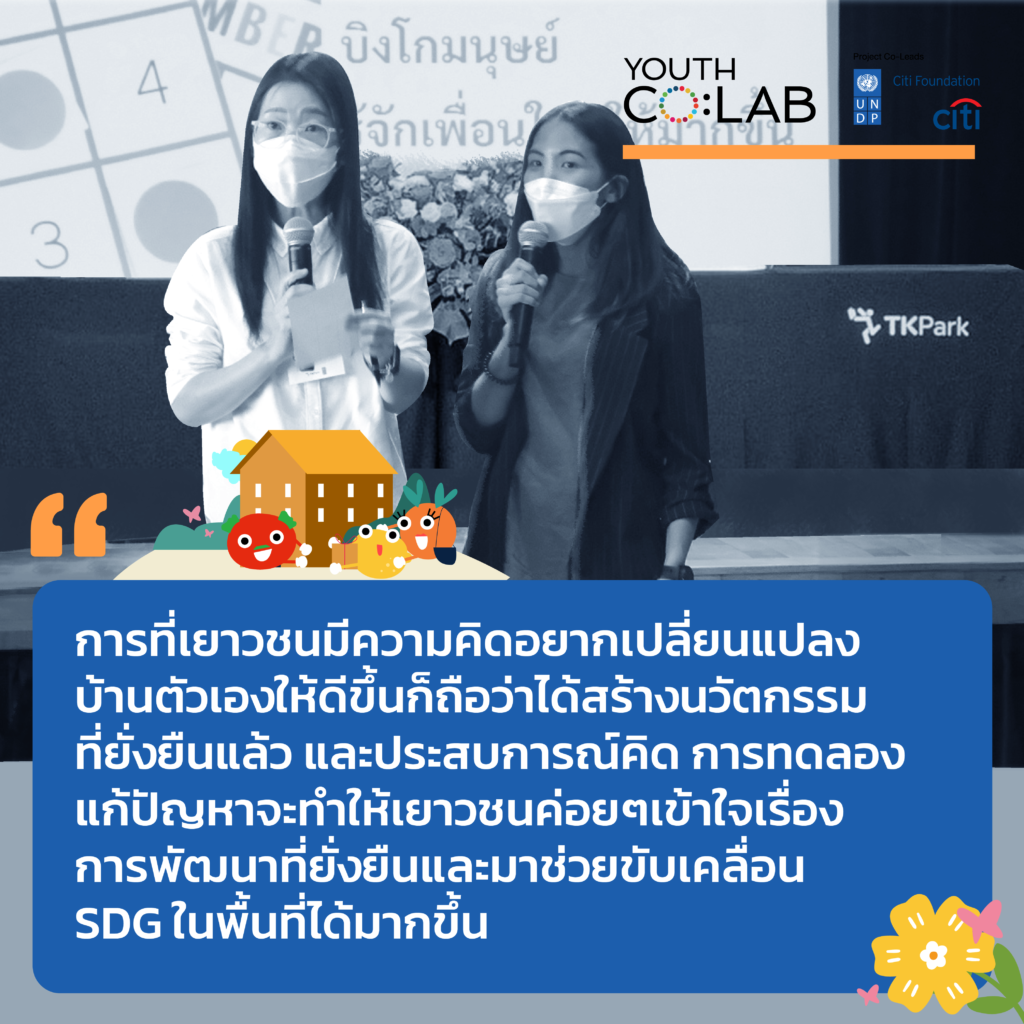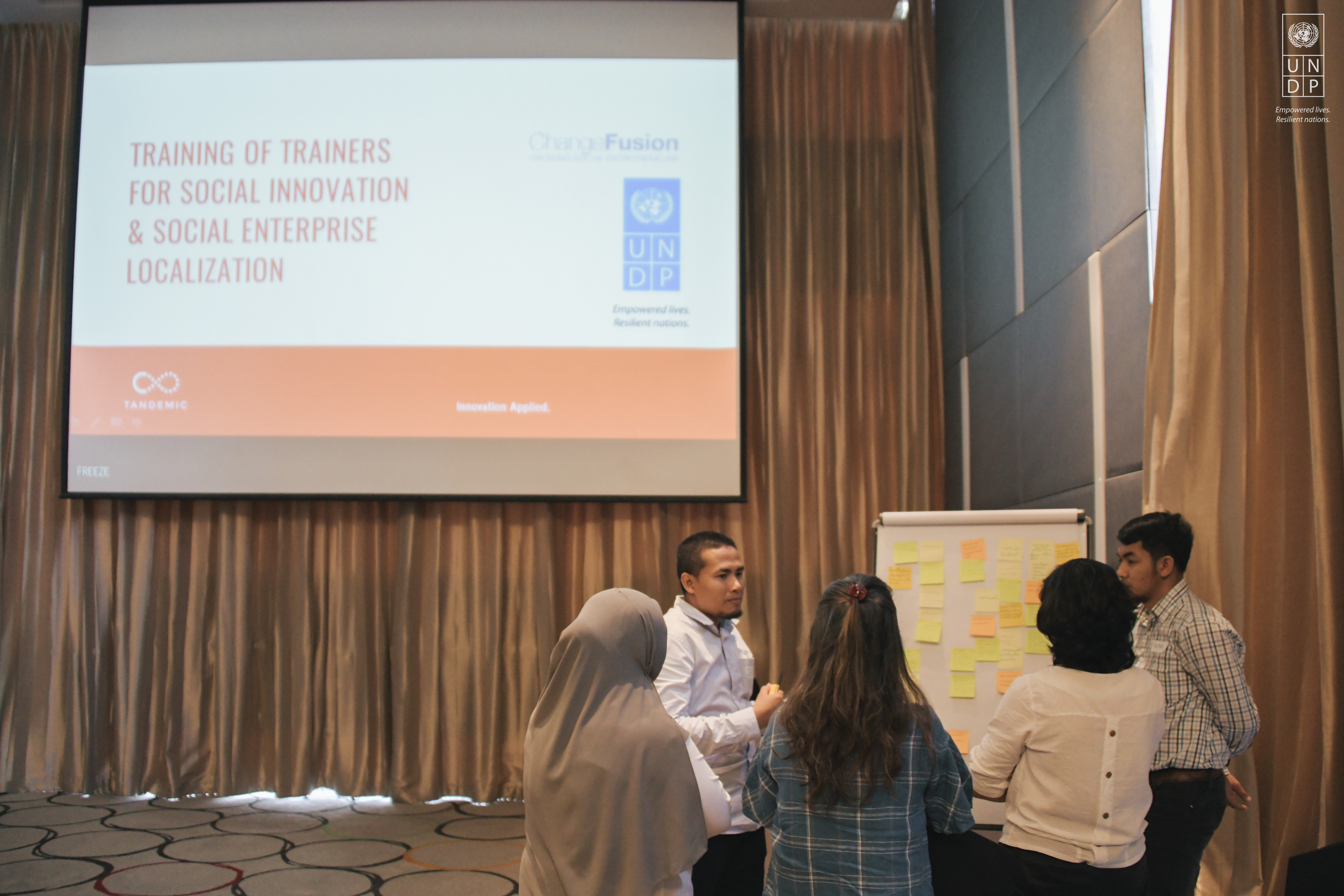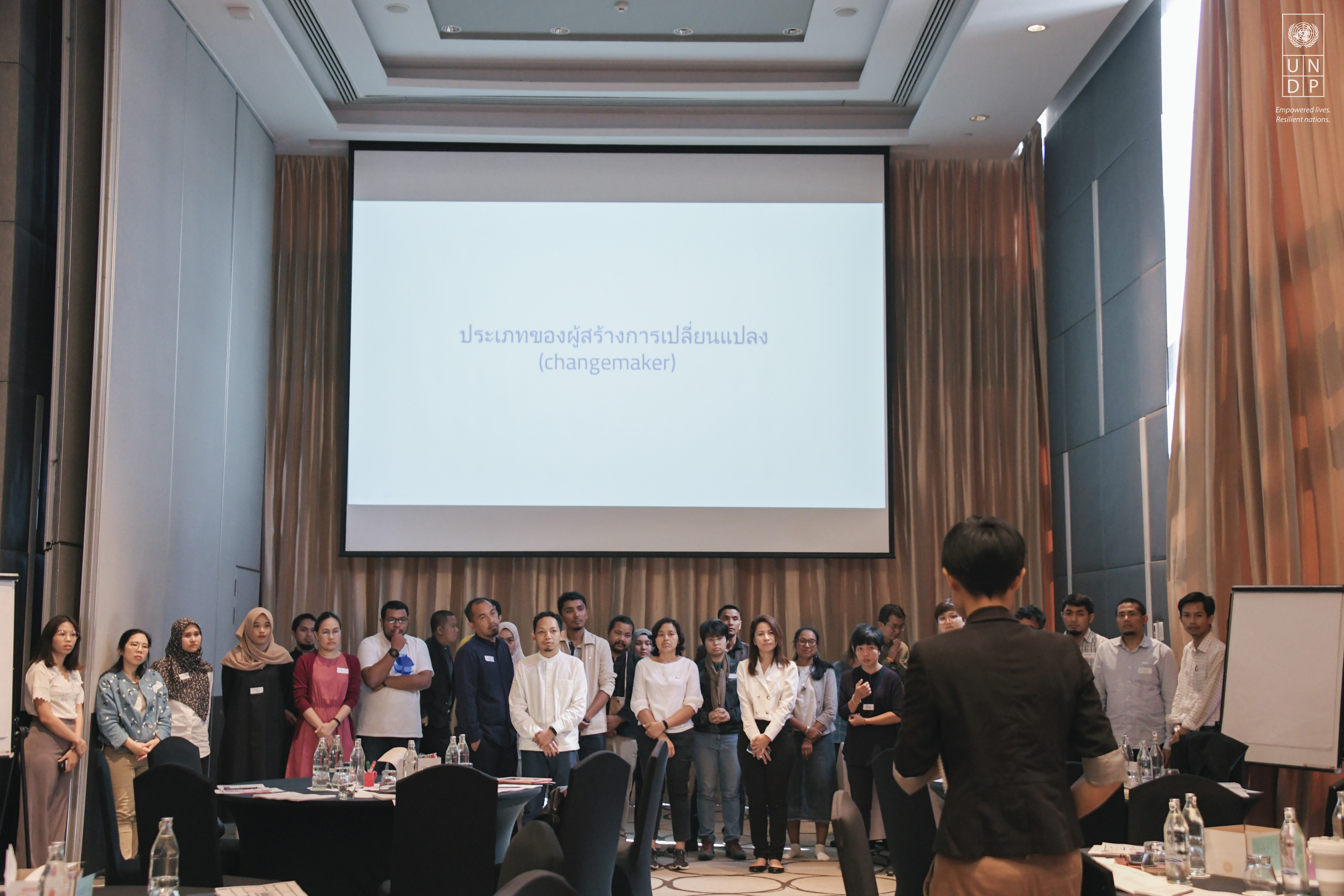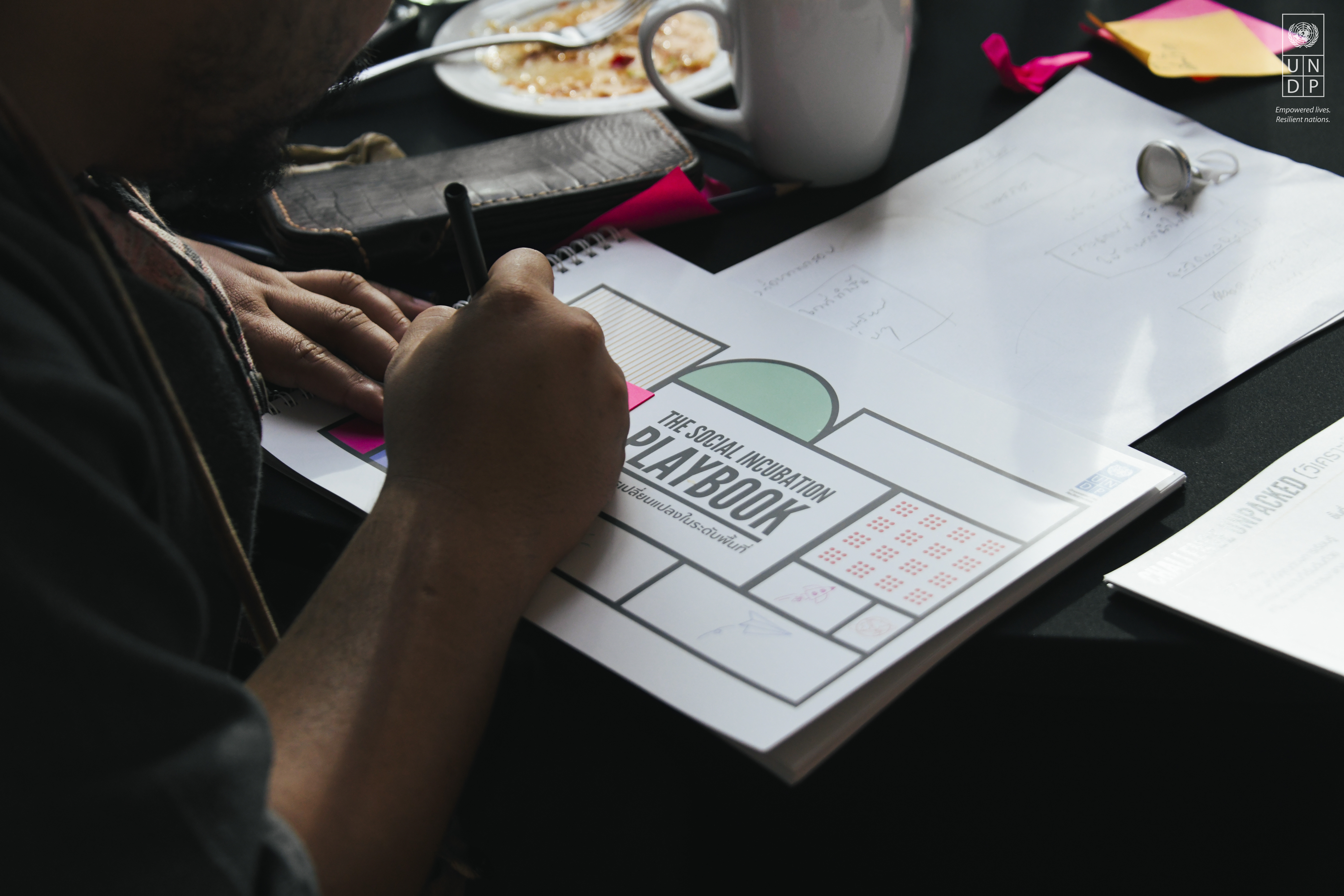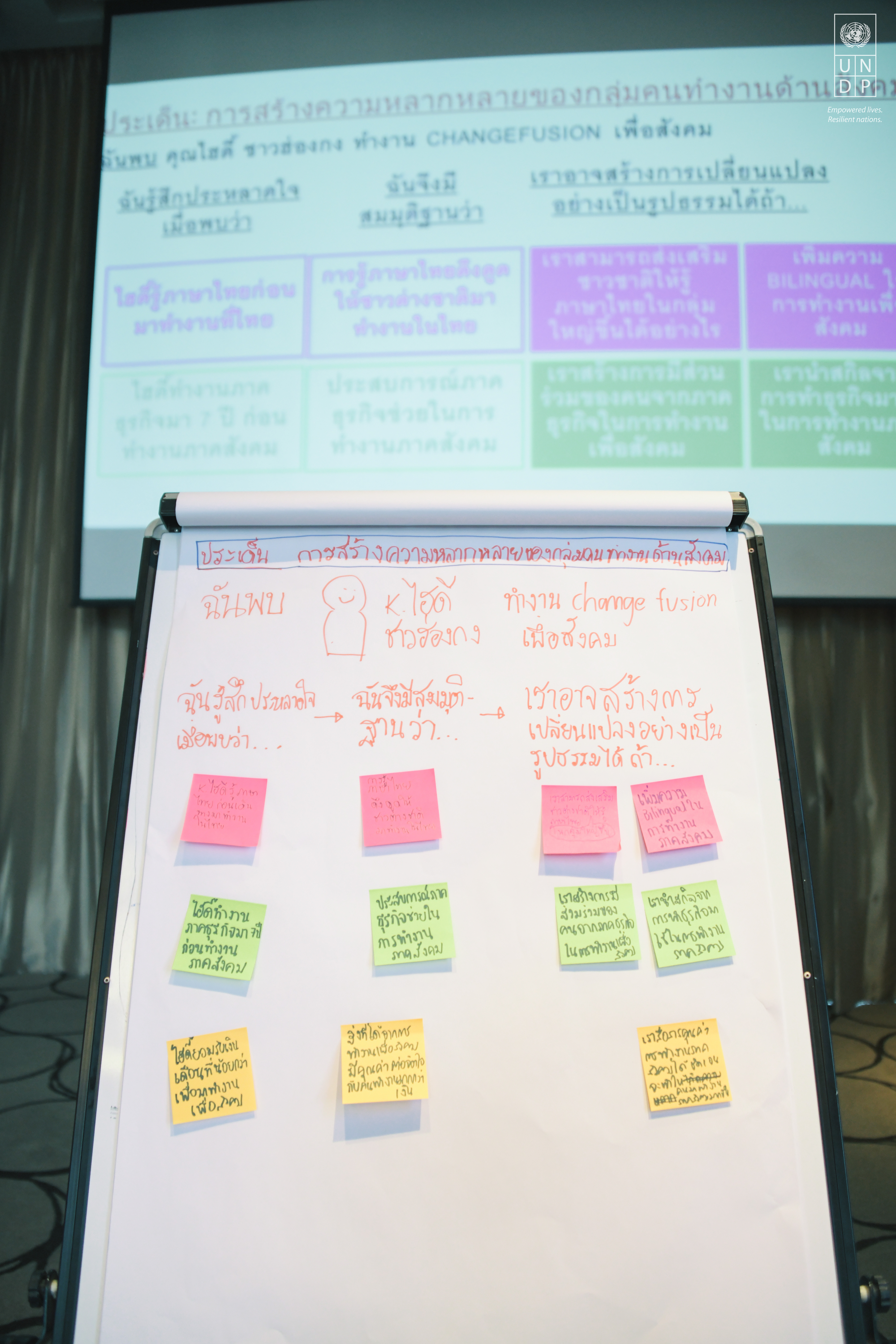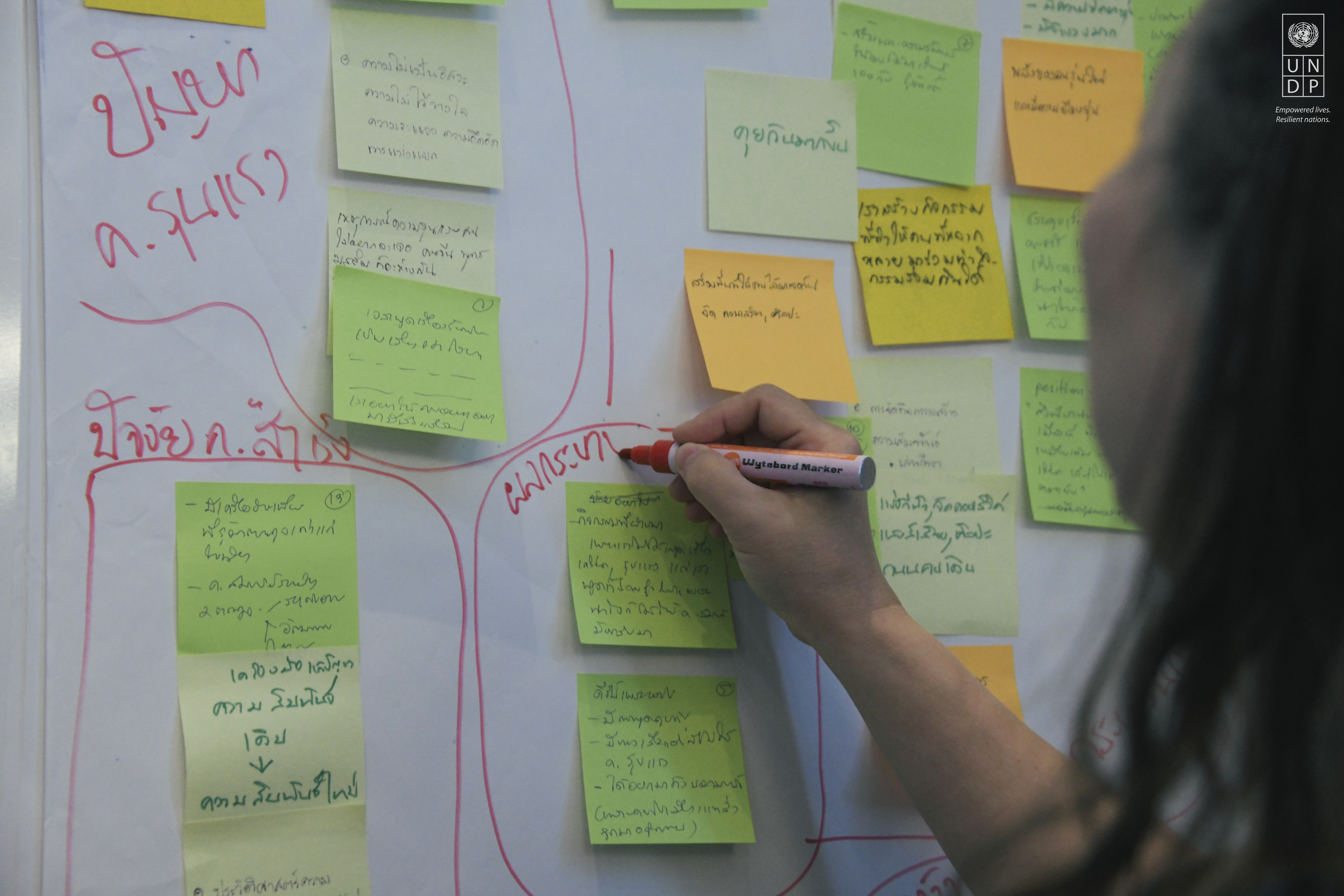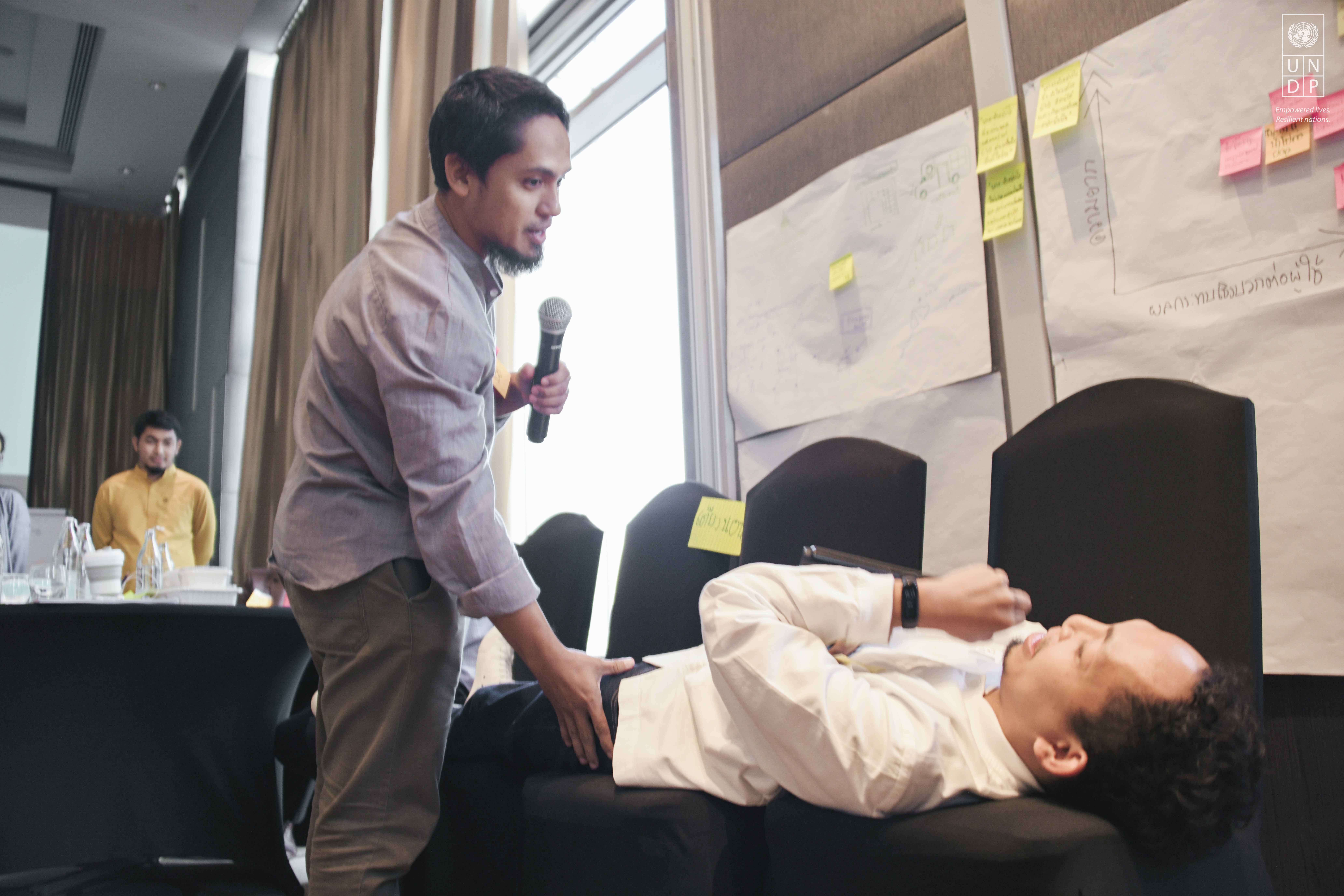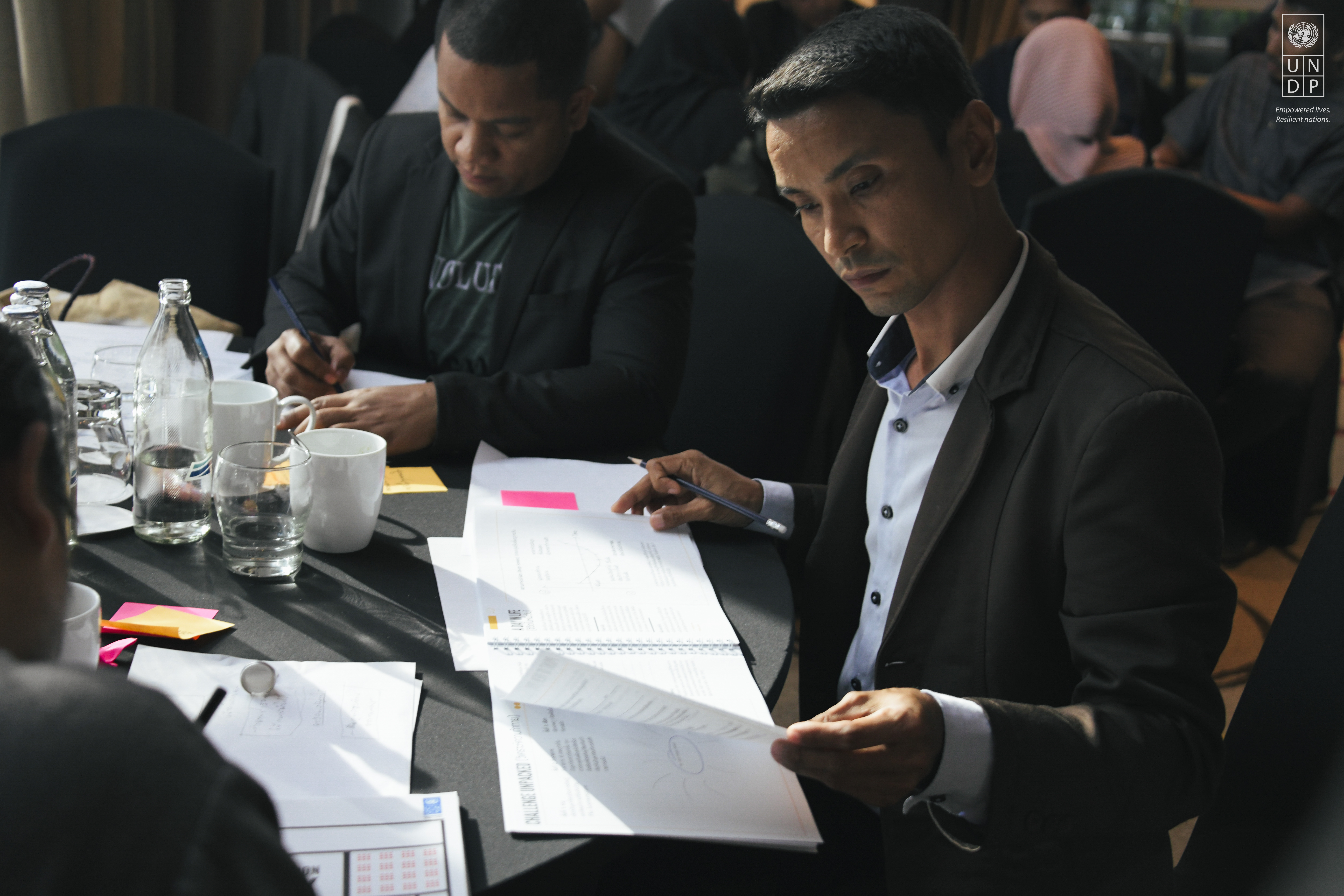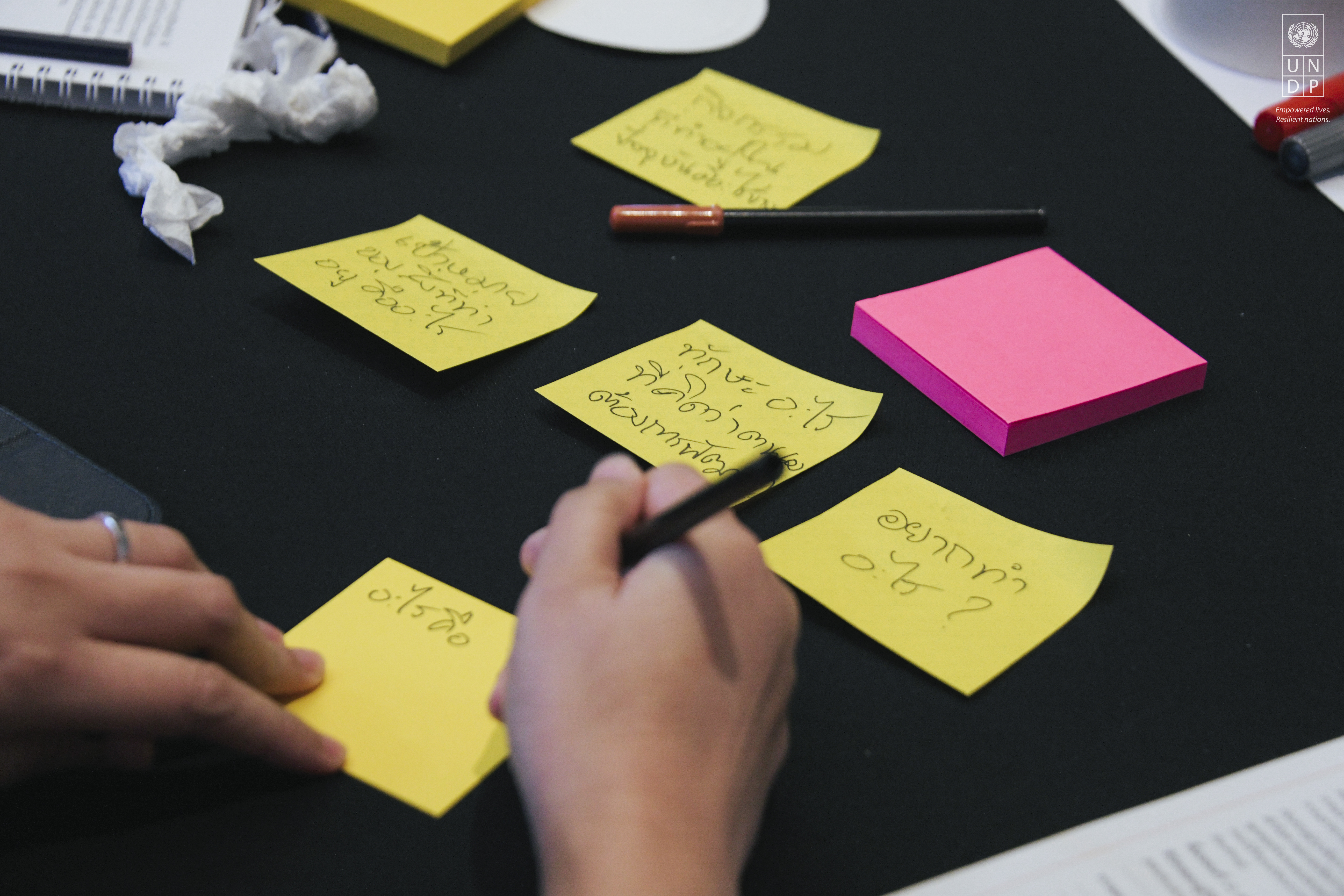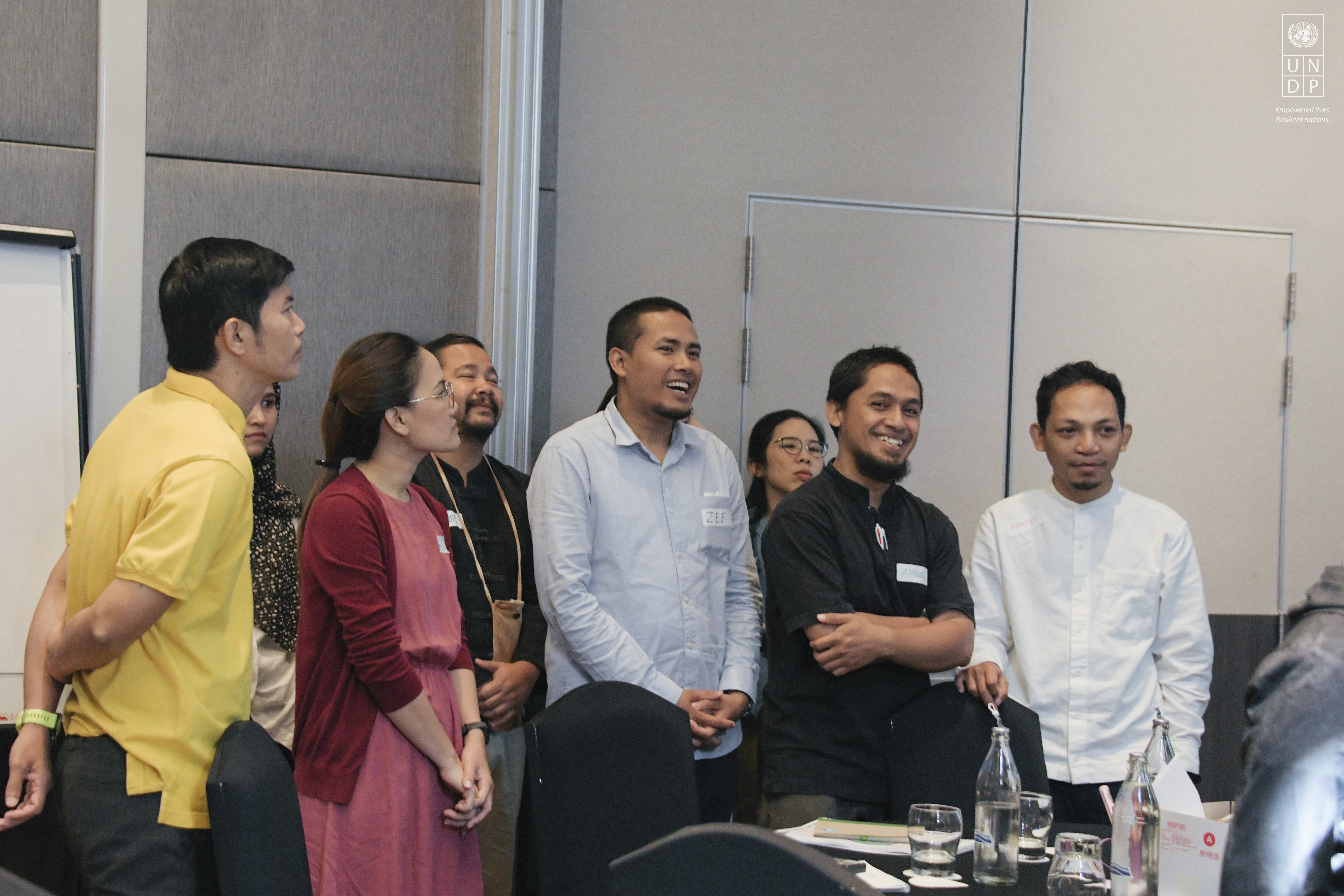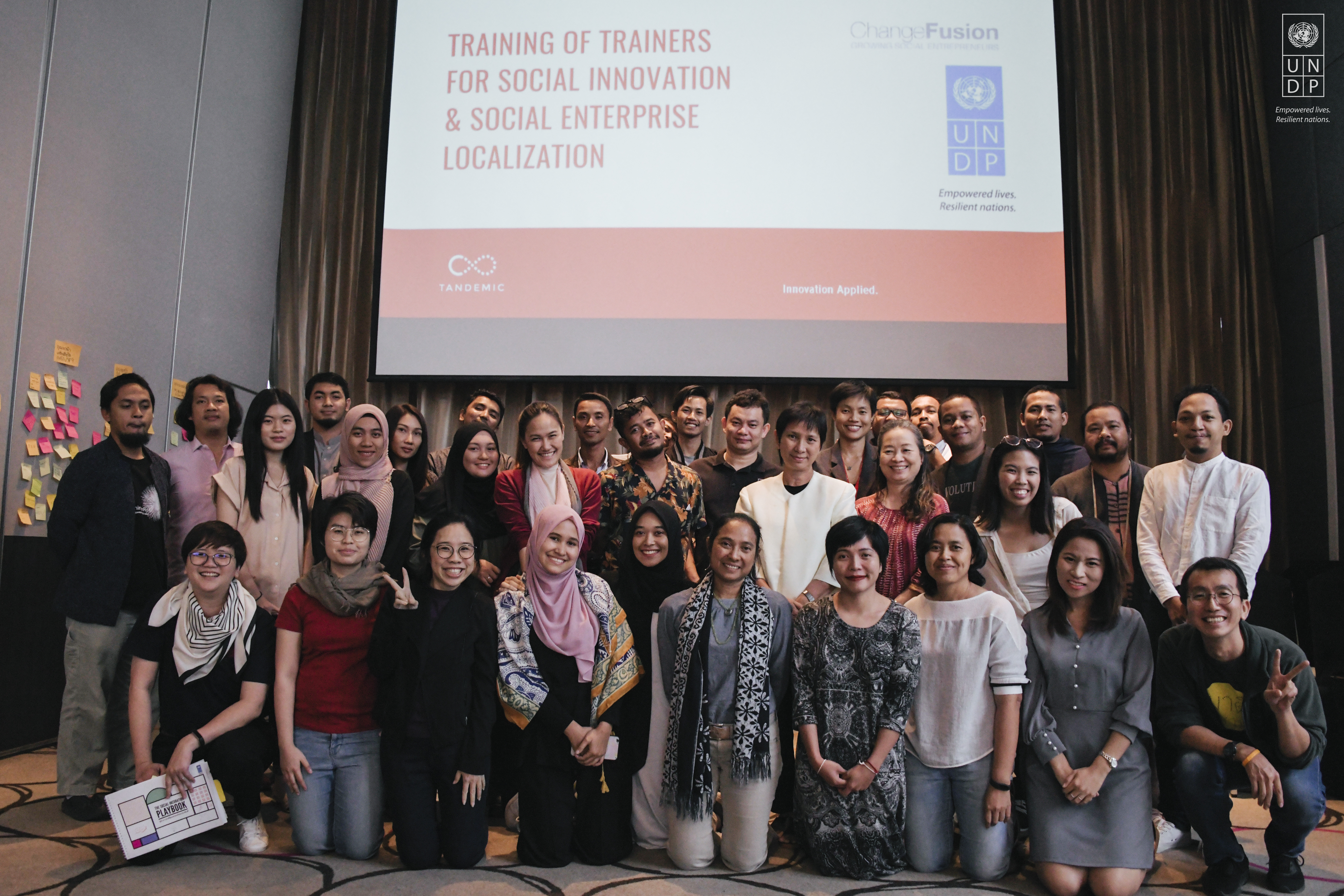- Published Date: 15/12/2022
- by: UNDP
Ocean Heroes: keep marine debris out of the ocean with the power of youth and local wisdom from Narathiwat
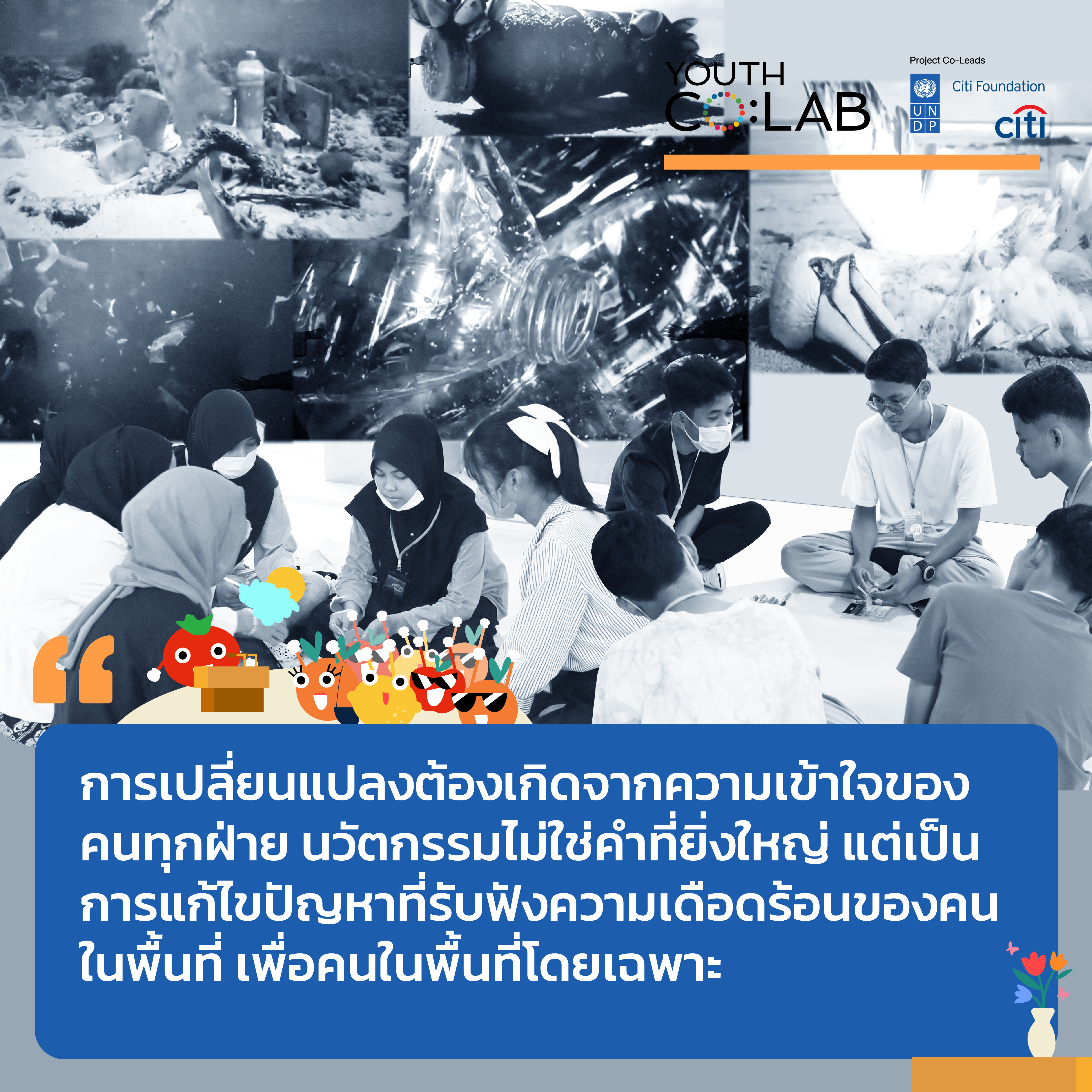
‘Narathiwat’ is known for the richness of natural resources, notably those from aquatic areas. Although artisanal fishing is the cornerstone of local traditions there, the province has been plagued with frequent volatile weather and marine debris. Plastics are scattered everywhere, from the littered shore to swirling waves, and they force Narathiwat folks to look for a new way of living.
For more than 5 years, Youth Co:Lab, supported by UNDP Thailand, has opened up the space for newcomers across the country to visit Bangkok and innovate in a way that responds to the 17 Sustainable Development Goals (SDGs) together. To keep up with the constantly evolving world amidst the pandemic, Youth Co:Lab has previously introduced new measures in convening and nurturing youth: online forum and social entrepreneurship training. These recent changes help sustain the project in the long run, so that more and more younger generations continue to take part in this pursuit of social transformation.
This year, UNDP Thailand decided to take a new initiative – going all the way to the local communities and working out solutions for existing problems along with Thailand Knowledge Park (TK Park), Youth Co:Lab’s major partner who also believed in the power of youth.

Litter has been with us for the longest time, now when will it be gone?
Although Ocean Heroes is not a never-seen-before project, it was the first time Narathiwat Knowledge Park hosted such a training camp. It all began with plastic litters caught in fishing gears of artisanal fishers near a gulf. Combined with fishing debris such as used drift nets, those litters were major pollutants that exacerbated environmental degradation. Thus, the UNDP-Narathiwat Knowledge Park collaboration through the 2022 Youth Co:Lab was intended to fix this issue with innovation on the grounds. From February of this year onwards, staff from UNDP Thailand visited the project site, engaged in various conversations and trust-building activities with local stakeholders. In June, staff from Narathiwat Knowledge Park also joined the “Train the Trainers” project to learn more about the SDGs and facilitator’s skills.
More than 100 participants from 19 teams applied for the Ocean Heroes project, which was hosted back in October. Due to the limited capacity of staff, only 5 teams, or 25 participants, were selected. However, the overwhelming numbers of applications received showed that this project was able to reach the target group and arouse their interest in participatory activism. The majority of the participants were pursuing secondary education, and the main age range of the participants was 16-21. Narathiwat Knowledge Park organized a learning activity called “First Meet,” introducing the basics of the SDGs and marine pollution and waste management. Given by staff from Prince of Songkla University and entrepreneurs who specialized in recycled products, the lecture showed possibilities of change to youth. The First Meet event then quickly morphed into interviews with local stakeholders. In this part, participants identified connections between each interviewee and different angles of the issue that interested them. After categorizing problems according to the SDGs, they were tasked to answer the following questions: what would be the ideal solution? Who would benefit from it, and whose support and collaboration was necessary for its future success?
All of the aforementioned processes were rooted in a human-centered approach and designed to prepare the participants for online pitching. The judging panel was joined by UNDP staff; instructors from the Faculty of Science, Prince of Songkla University; and officials from Narathiwat Provincial Education Office. After carefully assessing the depths of each project, they would select 5 finalists, or 25 participants.
Although some left with disappointment, their understanding of marine debris also followed them to the next stage of their life. They are now equipped with a thinking system that allows innovation to prosper in their own hands.

All solutions start with local wisdom
No one should be left behind, and innovation sprung from traditional knowledge deserves to be recognized as valuable community creation. After the first round, 5 selected teams joined the Ocean Heroes training camp. Human-centered design was employed as the main framework of learning. Before embarking on the innovative journey, they must first master the skill of empathizing. To accomplish this goal, staff from Narathiwat Knowledge Park took the participants on a daily trip to see artisanal fishers, so that they could take in the stakeholders’ insights on marine debris and learn from a different set of lived experiences. They talked with each household, collected data, and made sense out of it. To identify core issues, problem tree analysis was a chosen method for this part. This was the hardest of all steps as the participants had to develop a solid overview of the issue before prioritizing their goals.
In the following days, facilitators helped them ideate solutions. The participants visited different communities to learn more about local wisdom in Narathiwat. Local innovation offered relatability and inspiration for younger generations to develop it into something of their own. During these trips, 5 finalists learned more about bulrush mats of Baan Ton village, batik fabrics of Bacho District, and the making of zebra dove cages.
At this point, the participants began to change their thinking system. To them, solutions were diversifiable, and possibilities seemed to never run dry. From being stricken with hesitance, fear of judgment, and unconstructive comfort found in the same, old idea, they discovered joy in problem-solving and making the concrete prototypes of their once abstract solutions. Their creations would be used in the final round.
The selected winner was the team that came up with ‘camping chairs made of discarded fishing nets.’ They transformed used fishing gears into functional and modern products. “Net-woven handbags,” inspired by local bulrush mats, won the runner-up prize. Plastic litters from the ocean were transformed into these artisanal products, practically reducing marine debris. The third prize winner was “marine garbage screeners,” based on scientific knowledge accrued from facilitators. This innovation was a refreshing alternative to recycled products that also helped with debris reduction.
In just 3 days and 2 nights, the youth of Narathiwat were able to exercise their creativity in an impressively systematic way. And their ideas would not simply stay idealistic; the project continued to run even after the competition ended, so that the participants could develop their prototypes into thriving social enterprises and receive funding for product testing.
The Ocean Heroes project, in collaboration with UNDP Thailand and Narathiwat Knowledge Park, was the stepping stone towards sustainable innovation. This is not a task that can be taken lightly, so are public relations and marketing, a necessary addition to Narathiwat youth’s repertoire of skills.
By participating in this project as the citizens of Narathiwat, the participants were driven to make positive changes that corresponded to their experiences, leaving a long-lasting impact on quality of life and local livability. Now they know that minor lives are capable of pushing for major transformation anytime. That changes arise from the common ground forged on different views. That innovation is not just a big word, but an act of humbly listening to the concerns of local people, with their interest in mind.
